Dr. Roopali tells us about the boon and bane of being an army brat and witnessing crisscrossing the length and breadth of the country, every two years, with her parents. Here is an account in the first part of the three-part story, exclusively for Different Truths.

When those big boxes made of wooden planks and steel begin to get a fresh coat of black paint, we know it is time to travel. These boxes are unique and somewhat emotional. You see they contain the travelling homes of military families. Inside them lie treasures and memories collected from various parts of India, and sometimes from other countries too. There are no military families without them. They are packed room by room, and then they are labelled, listing each item inside. This ensures unpacking and settling into a new home would be easy. These incredible packing and moving exercises are carried out by a band of expert soldiers.
Yes, the same deft fingers that can prime a rifle, and wield a khukhri, can also paint, stencil and design.
Each time as the years went by the white paint stenciled words changed Captain to Major N.K. Sircar from Jaipur to Srinagar.
Each time as the years went by the white paint stenciled words changed Captain to Major N.K. Sircar from Jaipur to Srinagar. The next time, Lieutenant Colonel N.K. Sircar from Srinagar to Bangalore. And then another time Colonel N.K. Sircar from Bangalore to Delhi. Dad’s rank kept changing and places, too, until the last one, Brigadier N.K. Sircar, Retd. from Delhi to Secunderabad. Now, the black steel boxes sit forever piled one on top of the other silently in the garage. They never travelled again. And what was inside seemed redundant in a tiny flat. One Sunday or so every other month, they were opened and marvelled at. The whiff of naphthalene balls stirred memories as albums with photos of places we had visited, and trophies Dad had won, tumbled out. “Throw out all this junk! Why are you keeping it,” friends would offer helpfully. And Daddy’s heart broke each time.
Every two years we would traverse the length and breadth of our wonderful India. Our tickets paid for, and our boxed homes were taken care of. The box marked “kitchen” was always the first one opened, and its contents set up. Mother would at once get busy in the new kitchen. We never had to open the other big black boxes made of wood and steel. Soldiers waited at our destination to open them.
More often than not we had to live in temporary barracks housing, until a proper house was allotted to us.
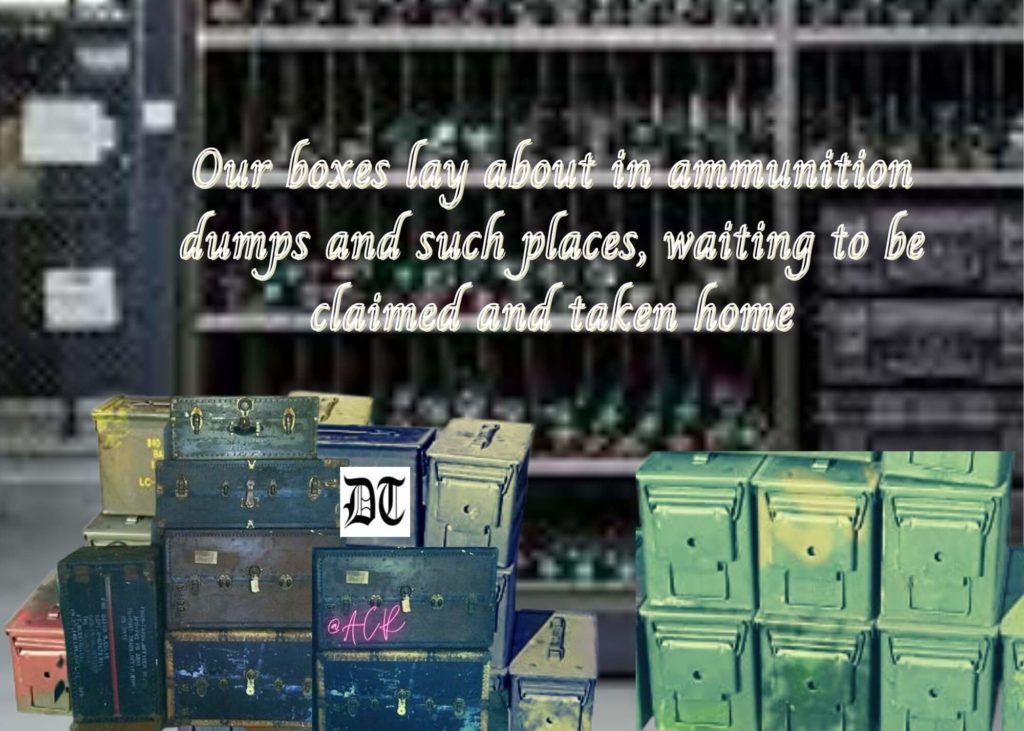
More often than not we had to live in temporary barracks housing, until a proper house was allotted to us. So our boxes lay about in ammunition dumps and such places, waiting to be claimed and taken home. Of course, curtains were invariably ruined. But that did not matter. Military housing in the cantonment always had many, many really tall doors. Any surviving curtains were always too short for these doors! But you could, and still can recognise a military home as soon as you enter it. It is home much travelled. You will find Odisha in the front garden, creating lovely shade through the applique garden umbrellas from the colourful crafty village of Pipili just outside the capital city of Bhubaneswar. A bamboo gate and the yellow-red croton plants from the rain-drenched forests of Assam; the hanging pots of exotic orchids from Shillong in Meghalaya; and the cane furniture in the long verandah from Alipurduar in West Bengal. You will always notice the long black and red fuzzy spear from hilly Nagaland on a door or a wall. And the beautiful handwoven shawls from the women’s market in Imphal, Manipur that cover the black steel boxes, camouflaged into elaborate seating arrangements. Extensive travels are all you see in this room that is quaintly called the drawing-room. You will be witness to a Pan-Indian home – those travels, an integral part of military life, nowhere else to be found, taking us to far-reaching parts of India. The wooden mounted carving with the Omar Khayyam lady with her jug of wine from MHOW in Madhya Pradesh where all infantry officers spend half their lifetime training or teaching at the Infantry School or the College of Combat. The toran doorway adornment from the Rann of Kutch, a good luck charm. The bedspread with large elephants in indigo all the way from Jaipur in the desert state of Rajasthan. Without them no fauji bedroom is complete. A few chairs with Rajas and elephant paintings and marble from Kishangarh, a crafty village on the way to Ajmer, also in Rajasthan.
Military wives are very shrewd. On a limited budget, they own quite a few things that the high and mighty crave. A group of military wives would easily pile onto a One-Tonne (no, really, that is what it’s called. It’s a large pick-up truck) normally on duty on its way to bring back supplies, mattresses on the floor of the truck for the kids, and a folding chair for the senior officer’s wife with a bad knee. A stool would miraculously appear to clamber on and off the One-Tonne. And off went the One-Tonne and its women and children cargo to Pochampalli, a small village in Krishnagiri, Tamil Nadu that wove luxuriously silky Ikat sarees. The One-Tonne and its women and children cargo also travelled to Bhujodi, near Bhuj in the Kutch district of Gujarat for its lovely woven shawls and silver.
The miraculous One-Tonne has also always made multiple trips to Doddaballapur, 40kms outside Bangalore for its exquisite silk saris.
The miraculous One-Tonne has also always made multiple trips to Doddaballapur, 40kms outside Bangalore for its exquisite silk saris. Fauji children’s weddings were never complete without a trousseau from this town.
Kathakali masks from Kerala in red, green, white and black jostle with the metalwork inlay craftsmanship from Bidar in Karnataka, and wooden god carvings from Kanyakumari hang off of the whitewashed colonial walls in military homes, a silent yet vocal testimony to service to the country, and to the distances travelled. They are all witnesses to long train journeys and military Jeep and Jonga rides through changing terrain. Sometimes friendly, sometimes hostile, crisscrossing the length and breadth of India. The soldier’s postings take them with or without their families away from home to another part of their country. Meeting new people, learning new languages, acquiring new tastes and food habits and much more, have made the Indian soldier a composite, culturally sensitive person, and given their children a unique upbringing and identity.
A few years ago, graffiti on a nearby wall advised – “If you want to ski down the icy glaciers of Siachen, or walk barefoot on the sandy beaches of Kandy, join the Indian Army!”
To be continued
Visuals by Different Truths

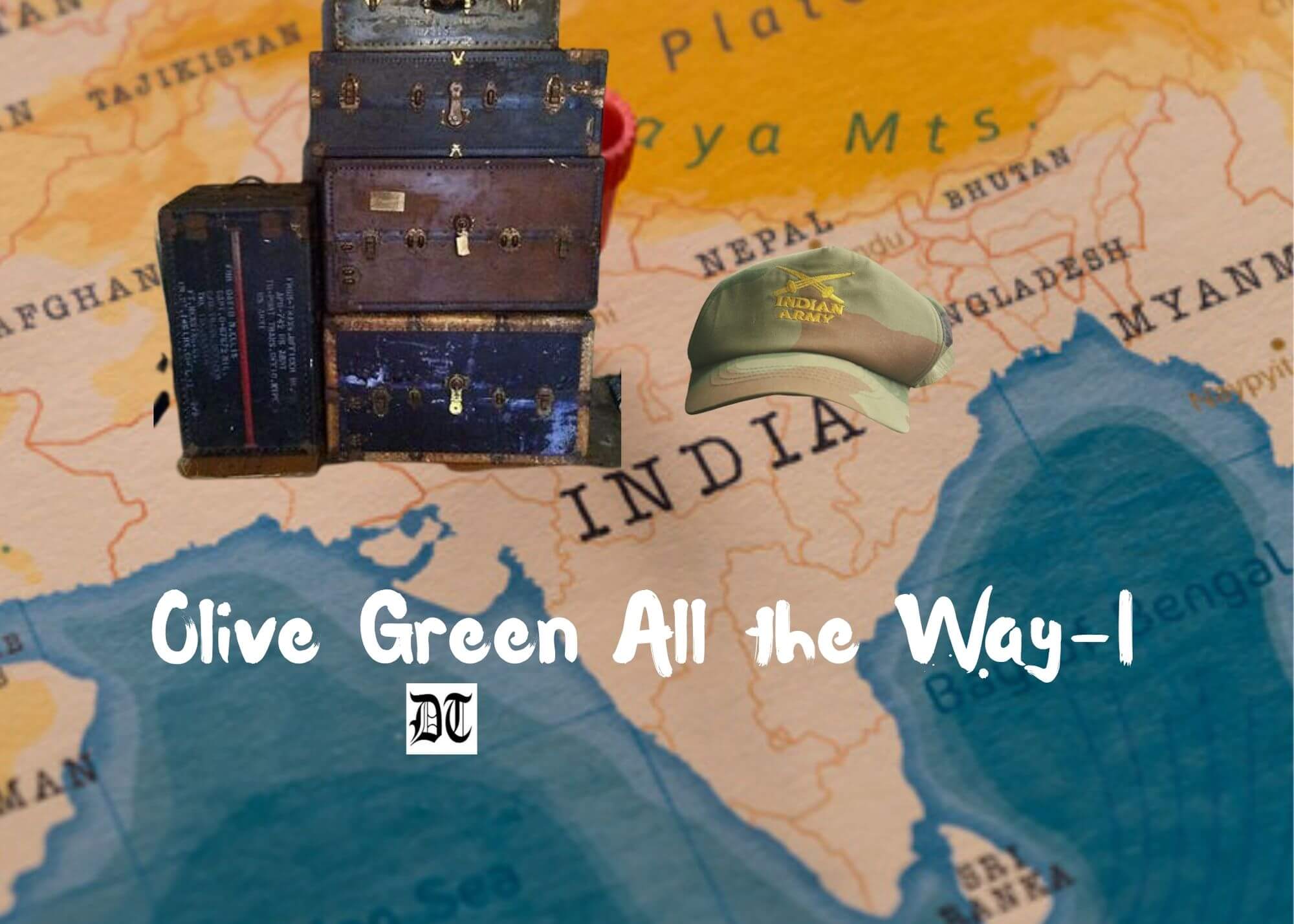



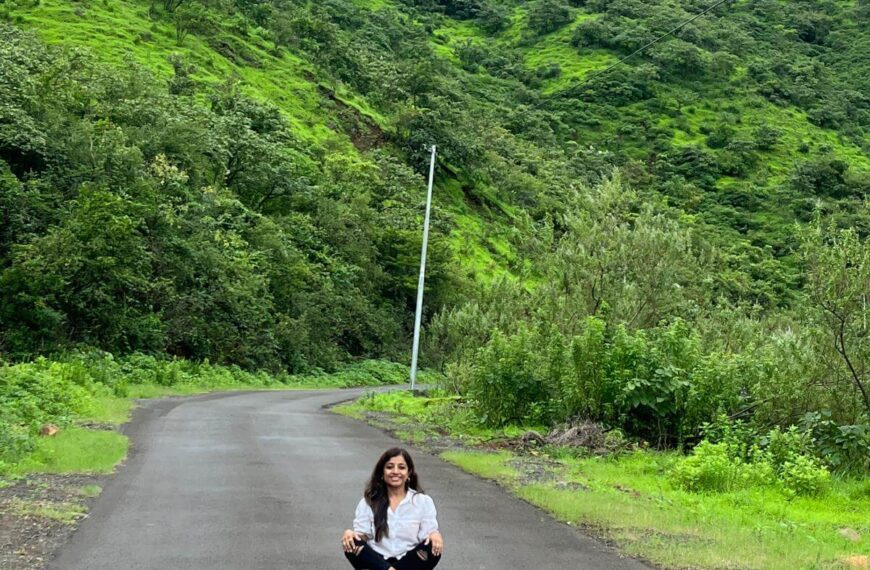
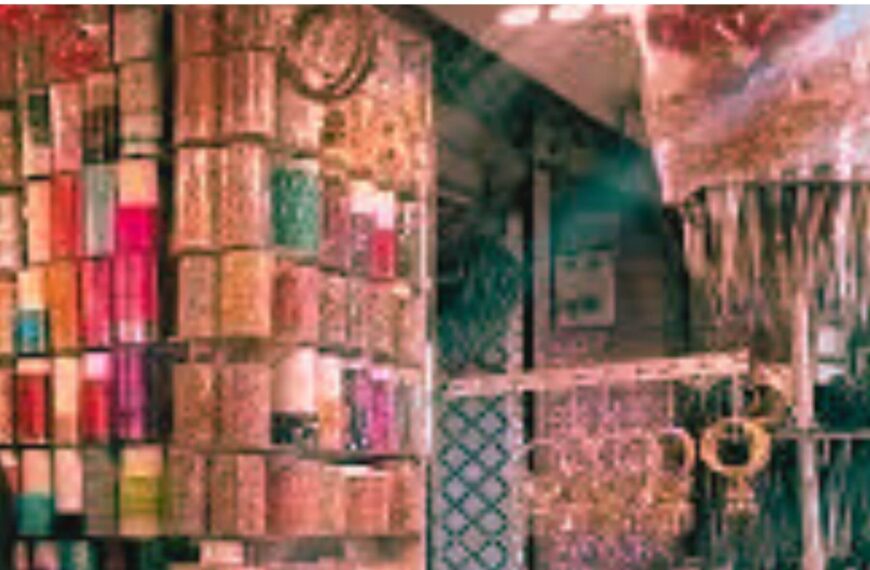
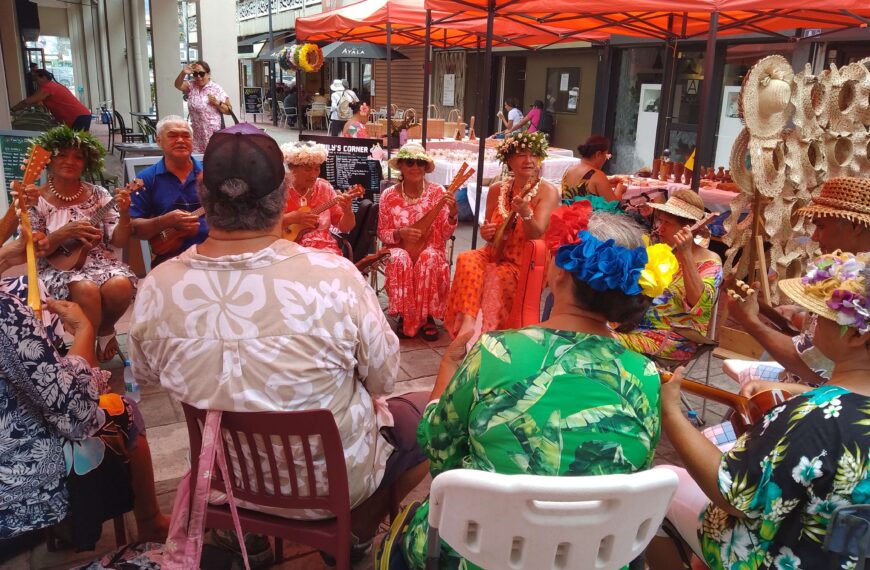

 By
By